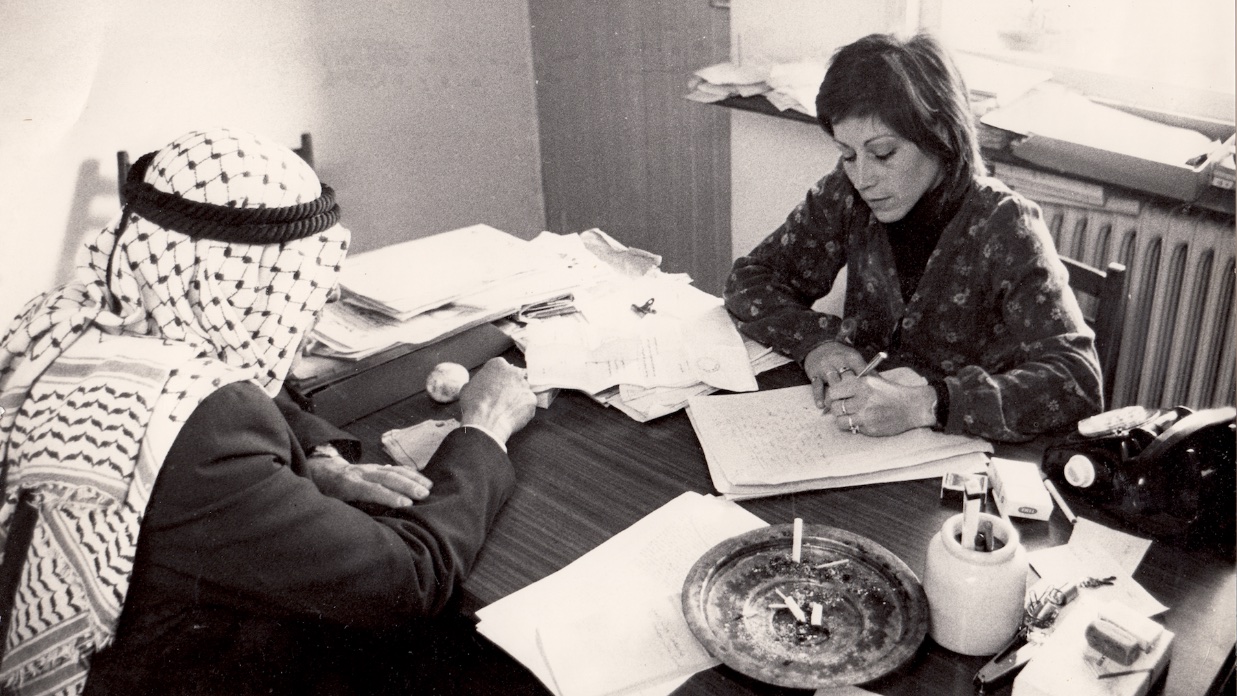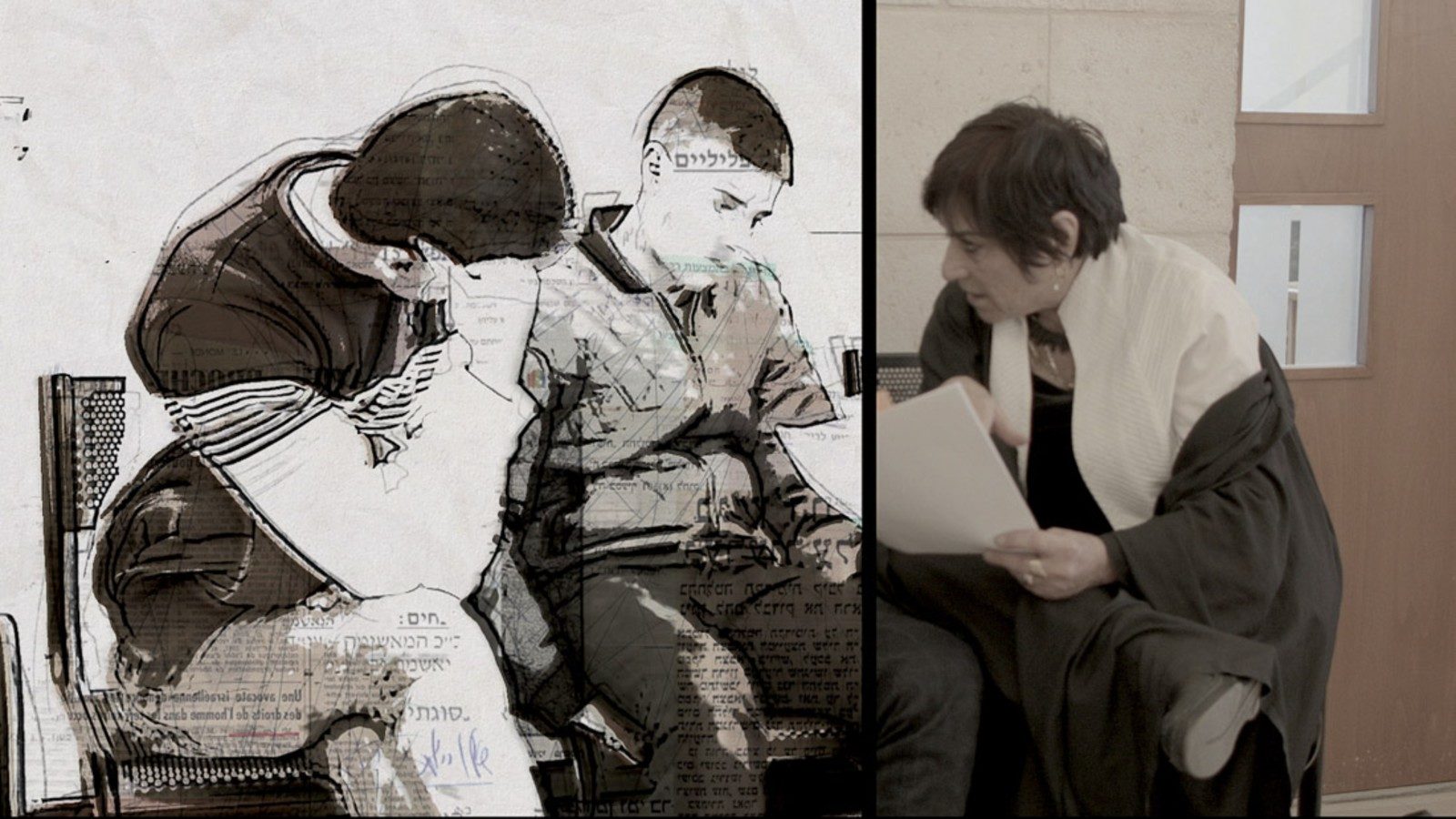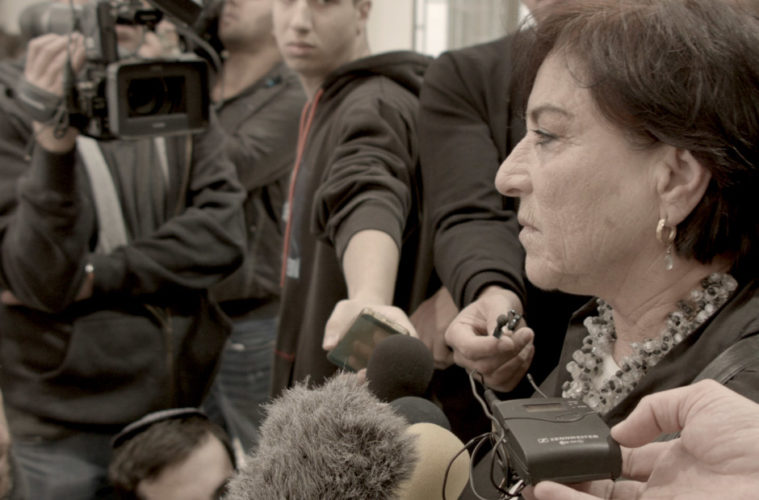The polarizing legal documentary Advocate has rightfully caused controversy within Israel and around the world, telling the story of Lea Tsemel, a Jewish-Israeli human rights lawyer who defends Palestinians who have committed real crimes. Although she’s thought of as the devil’s advocate, she persists, offering a defense of those who she views as political prisoners. In various interviews throughout the documentary she navigates her role in this as an Israeli, married to a left-leaning activist Michel Warschawski. In one tense exchange from the late 1990s she defends her clients, defiantly telling the interviewer that Israeli citizens are in no position to tell Palestinians how to react to their occupation.

The cases she takes on aren’t easy and in many the only victory is a lighter sentence. The political climate grows more heated as the film focuses upon the case of Ahmad, a 13-year-old with a knife who took the streets with his 15-year-old cousin who stabbed an Israeli teenager in a fight. The cousin is killed by security forces and Ahmad is tried for two counts of attempted murder, despite not having participated in the fight. On TV he’s called out by none other than Benjamin Netanyahu as a terrorist, rather than a kid in the wrong place at the wrong time. Facts don’t matter when the narrative, which continues to spread, is convenient rhetoric.
Not all of her clients are of course innocent and, like a good lawyer, she springs into action to mount a defense of those who have carried out terroristic acts, often cutting through enhanced charges piled on by overzealous prosecutors. The film, directed by Rachel Leah Jones and Philippe Bellaiche, proves to be a fascinating legal drama rooted in an inherent conflict as Tsemel navigates a legal system where the odds seemed stacked against her, despite remaining hopeful that justice will prevail. In the end, she has less of a reason to be optimistic but will continue to fight the good fight against overwhelming opposition. She does receive a victory, fighting alongside her husband against policies used by security forces that are tantamount to torture and securing a ruling to end such treatment. But as Ahmad’s forced confession proves, just because the court rules against it, doesn’t mean it isn’t practiced.

Directors Jones and Bellaiche take steps to responsibly mask the identities of certain subjects, including Ahmad as well as the victims of these attacks, offering a critique of Israeli media’s interest in broadcasting such images. Instead, the filmmakers employ blurred frames and crude animations as a device, offering a disclaimer at the top of the film that such choices were made for ethical and legal reasons.
Advocate is a brave and well-made picture, an international production with some Israeli funding. The film has been met with controversy earlier this year by the usual suspects and it led to a threat to pull public funding for the Docaviv Film Festival, where the film won its top prize. Directors Jones and Bellaiche have crafted a portrait of Tsemel providing her with a platform rather than a film that purely advocates on behalf of her politics. I suppose that platform is alone enough to scare those in power who would prefer to silence voices of dissent. The film exists and succeeds, not as a right- or left-wing talking point but as a portrait of a complex issue and a lawyer who is easily vilified.
Advocate screened at DOC NYC 2019 and opens on January 3, 2020.

